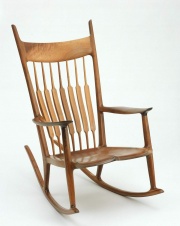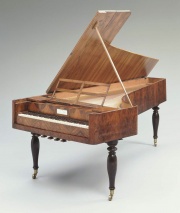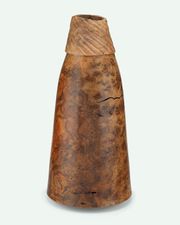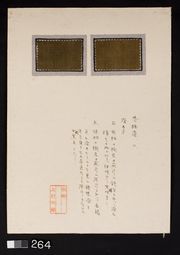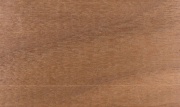Difference between revisions of "Walnut"
| Line 32: | Line 32: | ||
== Resources and Citations == | == Resources and Citations == | ||
| + | * Alden Identification Services, Microscopic Wood Identification: [https://wood-identification.com/wood-types/ Link] | ||
* G.S.Brady, ''Materials Handbook'', McGraw-Hill Book Co., New York, 1971 Comment: p. 856 | * G.S.Brady, ''Materials Handbook'', McGraw-Hill Book Co., New York, 1971 Comment: p. 856 | ||
Revision as of 10:00, 9 October 2020
Description
Strong, valuable, hardwood trees of the genus Juglans native to the temperate climates of the northern hemisphere. Walnut trees have fine-grain, uniform wood that polishes to a high gloss. They are used for furniture, painting panels, frames, sculptures, veneer, piano cases, carving, and gun stocks. A drying oil is pressed from the nut kernels and is used in artist paints. Ground nut shells are used as a filler in plastics and as a soft abrasive. A dark brown dye can also be extracted from the nut shells.
- American or Black walnut (J. nigra): native to the eastern U.S.
- Butternut or white walnut (J. cinerea): native to the eastern U.S.
- California walnut (J. californica): native to the western U.S.
- English, Circassian, Persian, French walnut (J. regia): native to Eurasia
- Chinese walnut (J. cathayensis): native to Asia
Synonyms and Related Terms
noyer (Fr.); Walnuss (Deut.); noce (It.); nogueira (Port.); nogal (Esp.); black walnut (Juglans nigra); Queen Ann's cabinet wood; Butternut or white walnut (J. cinerea); California walnut (Juglans californica); English walnut (Circassian walnut, Persian walnut, French walnut (Juglans regia); Chinese walnut (Juglans cathayensis)
Collection Risks
Links to Oddy Test results posted on AIC Wiki Materials Database Pages for individual materials below
° Walnut Tested in 2012
° Walnut Tested in 2012 for comparison to coated Walnut wood
Physical and Chemical Properties
- Height: 30-40 me
- Bark: grey-black with deeply furrowed, thin ridges in a diamond pattern
- Leaves: pinnately compound alternating on stem with 15-23 leaflets. Stem is 20-60 cm long
- Density = 40-50 ppcf
- Fruit: nuts ripen in late summer/fall with a greenish brown husk encasing a brown nut
Resources and Citations
- Alden Identification Services, Microscopic Wood Identification: Link
- G.S.Brady, Materials Handbook, McGraw-Hill Book Co., New York, 1971 Comment: p. 856
- Ralph Mayer, A Dictionary of Art Terms and Techniques, Harper and Row Publishers, New York, 1969 (also 1945 printing)
- Hermann Kuhn, Conservation and Restoration of Works of Art and Antiquities, Butterworths, London, 1986
- F. H. Titmuss, Commercial Timbers of the World, The Technical Press Ltd., London, 1965 Comment: 40-50 ppcf
- Dictionary of Building Preservation, Ward Bucher, ed., John Wiley & Sons, Inc., New York City, 1996
- Pam Hatchfield, Pollutants in the Museum Environment, Archetype Press, London, 2002
- Van Nostrand's Scientific Encyclopedia, Douglas M. Considine (ed.), Van Nostrand Reinhold, New York, 1976
- Random House, Webster's Encyclopedic Unabridged Dictionary of the English Language, Grammercy Book, New York, 1997
- The American Heritage Dictionary or Encarta, via Microsoft Bookshelf 98, Microsoft Corp., 1998
- CRC Handbook of Chemistry and Physics, Robert Weast (ed.), CRC Press, Boca Raton, Florida, v. 61, 1980 Comment: density=40-43 ppcf (0.64-0.70 g/cm3)
- Wikipedia: https://en.wikipedia.org/wiki/Juglans_nigra (Accessed October 2020)
